I
SVETLANA SOKOLOVSKAYA
Actress, 30, Minsk.
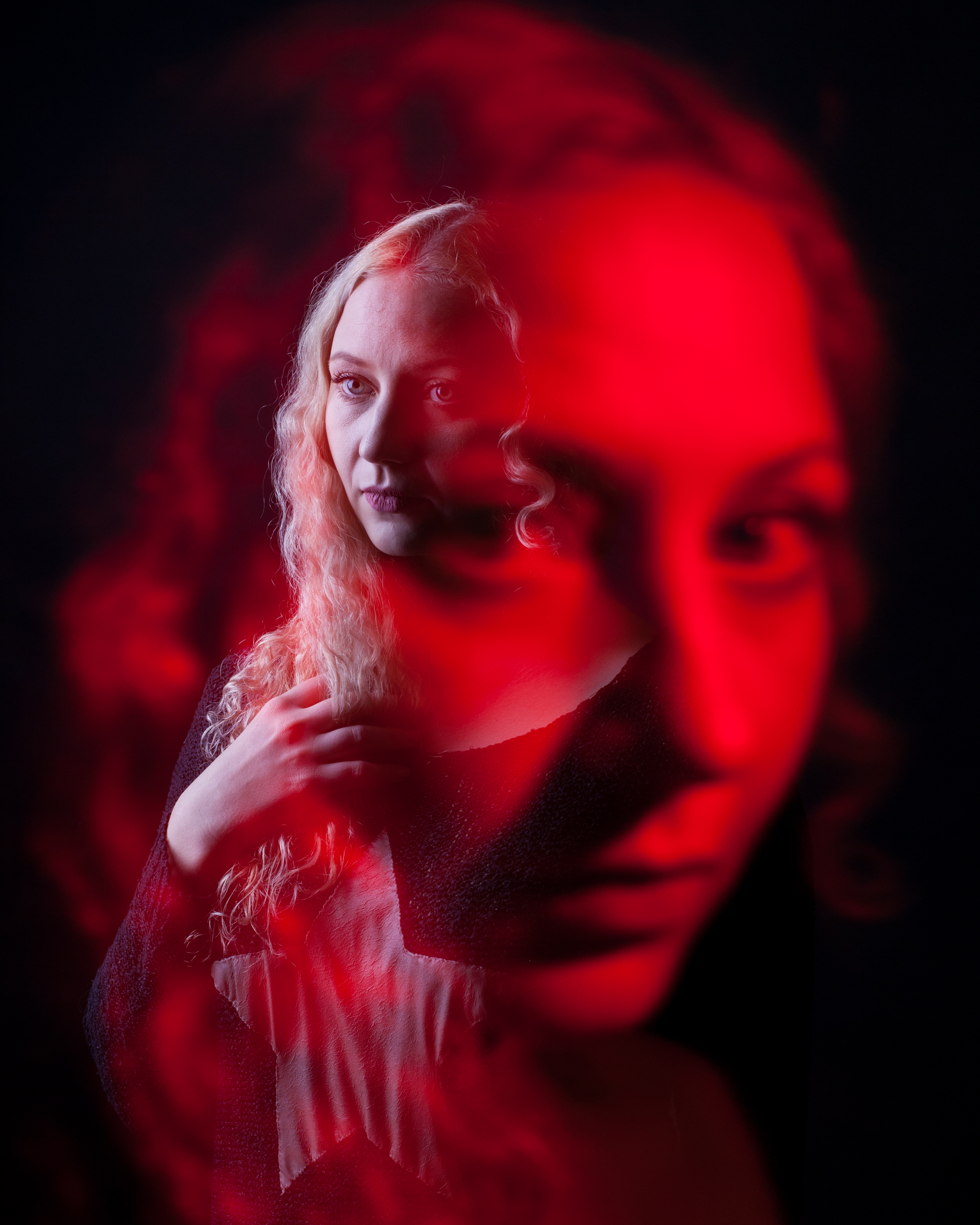
Handcuffs fastened to a jeep parked in Minsk city centre, Belarus. March 2018.
Violence and torture are often used tools in the work of the police, penitentiary and law enforcement agencies of Belarus. This is one of the conclusions of the UN Human Rights Council report for 2018.
The heroes of this project faced with police violence and have been relentlessly trying to defend their rights by legal means.
Complaints about police practice are considered by the General Prosecutor's office, the Investigative Committee, and the Internal Security Directorate of the Interior Ministry. According to the UN, out of 614 reports of acts constituting torture and ill-treatment received between 2012 and 2015, only ten were subject to criminal investigation. Sometimes administrative and criminal cases are initiated against the complainants to put dditional pressure on them.
Meanwhile, not all victims are aware of the psychological effects of violence and often fail to see the need for psychological assistance. They may experience high-pitched agitation, be depressed or suffer from post-traumatic stress disorder. In Belarus, there are no organisations providing psychological assistance to victims of torture.
Belarus is the only country on the European continent which is not a member of the Council of Europe, therefore, it is not judicable by the European Court of Human Rights. At the international level, Belarusians can only complain about their government to the UN Human Rights Committee. But until now, Belarus has not abode by a single decision of the Committee.
***
"I don't want to kill you" —
quote of police officer from story III is used as project's title.
Project was started in Belarus in 2018 and is still ongoing.
It was created thanks to the support of funders at crowdfunding campaing at Presstart in 2017.
I

On December 31, 2017, Svetlana, together with her boyfriend and three friends went
to celebrate the New Year at the main square. Riot police officers did not let them
into the secured area. A dispute arose resulting in brutal detention of Svetlana's
friends.
Riot police officer abruptly smashed the door of the police van and shut Svetlana's
finger. Then he hit her on the head with a baton, and Svetlana fainted. She was
diagnosed with a brain concussion.
None of the four surveillance cameras recorded those events. The police deny the
use of force. The Investigative Committee refused to initiate a criminal case
against the riot police officers. As of this writing, Svetlana is challenging this
decision in the Prosecutor's office.
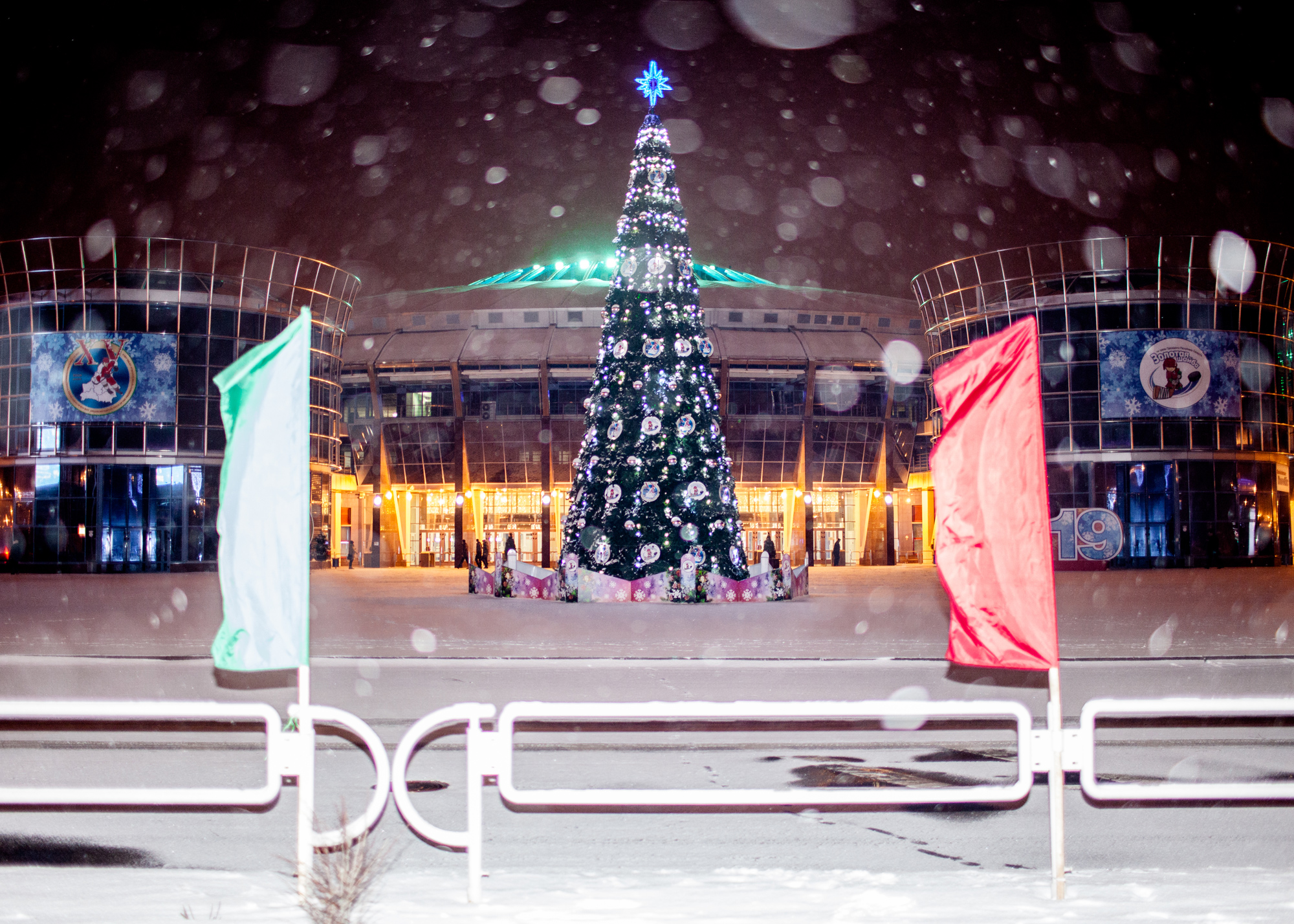 Christmas tree where Svetlana was beaten by riot police. January 2019, Minsk, Belarus.
Christmas tree where Svetlana was beaten by riot police. January 2019, Minsk, Belarus.
I was just frightened at the thought that I might have to stay alone in the street at 4
am in the New Year. That was my first thought – I'm scared.
I shout to the bus driver, 'Let me in, let me in!'
The hat and the hood limited my sight, so when I got hit on the head, I did not
understand what and who it was. The world goes dark before my eyes, someone
picks me up by the arms and shakes me, 'Hey, wake up! Are you OK?'
For me, it seems like one second, and I hear Sasha's voice next to me, 'Sveta, get
up, get up! The ambulance is on its way.' Another second, and I find myself in the
ambulance. Sometimes I came round but then fainted again.
The investigator was very lovely: smiling, jesting, cracking jokes. He said that if I had
been really hit by a riot policeman, that was an egregious case, nothing like that had
ever happened. He promised to investigate as soon as possible, because he, too,
had a wife and children, and he was very concerned about such situations. As a
result, he resolved that I had fallen down and hit my head.
I feel absolutely no anger, just disappointment. I realised at some point that it is a
balanced web of relationships, one common structure.
I want to secure that our guardians – the riot forces and the police – think about the
possibility of losing their jobs and depriving their families of food if they hit someone
on the head next time. If a person gets away with it, it creates an even higher wave
of violence.
II
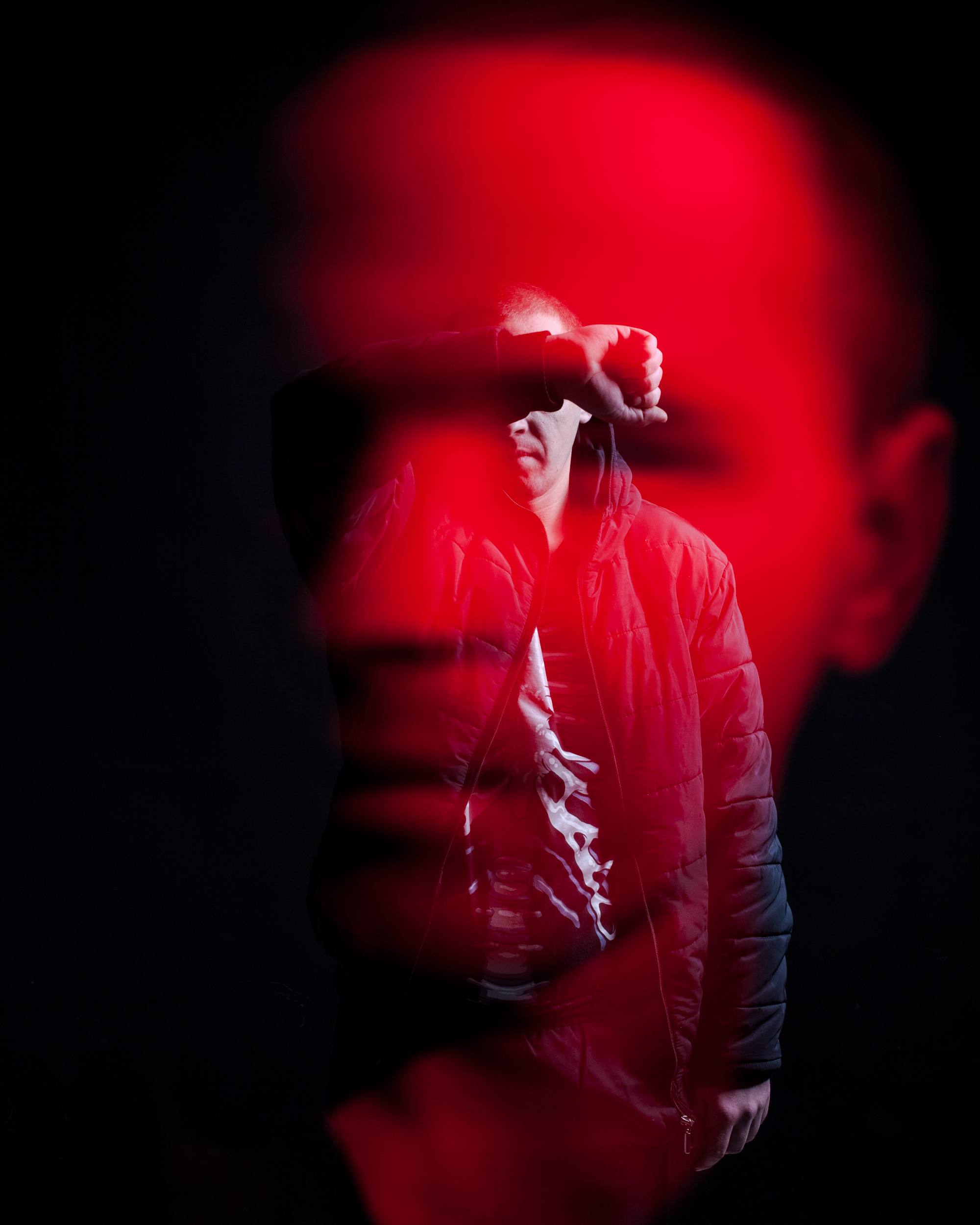
On December 30, 2017, two district police officers tortured Stanislav right at the
District Directorate of Internal Affairs No.8 (Mogilev), where he had come on a private matter.
Several times he lost consciousness while the policemen were beating him as he
was lying on the floor handcuffed, and then raped him with a police baton. After that
Stanislav became hysterical, he hit a table, the table broke, and a criminal case on
hooliganism was started against Stanislav. The trial took almost a year. At the end of
2018, the case was dismissed.
Before that, Stas had a criminal record - he spent six years in custody. He was released in 2014, met his future wife, a child was born, Stas got a permanent job.
In their testimonies, police officers pointed out that Stas hit his head against the corners of the walls, the doorway and floor tiles by himself. Stas took the initiative to go through a polygraph test at the Department of Internal Security of the Interior Ministry, but couldn’t access the results - the test was conducted for internal investigation.
After the case was published in the media in the winter of 2018, one of the district police officers resigned from the police force. The Investigative Committee refused to initiate criminal proceedings against the police. As of this writing, Stas is going to appeal this decision.
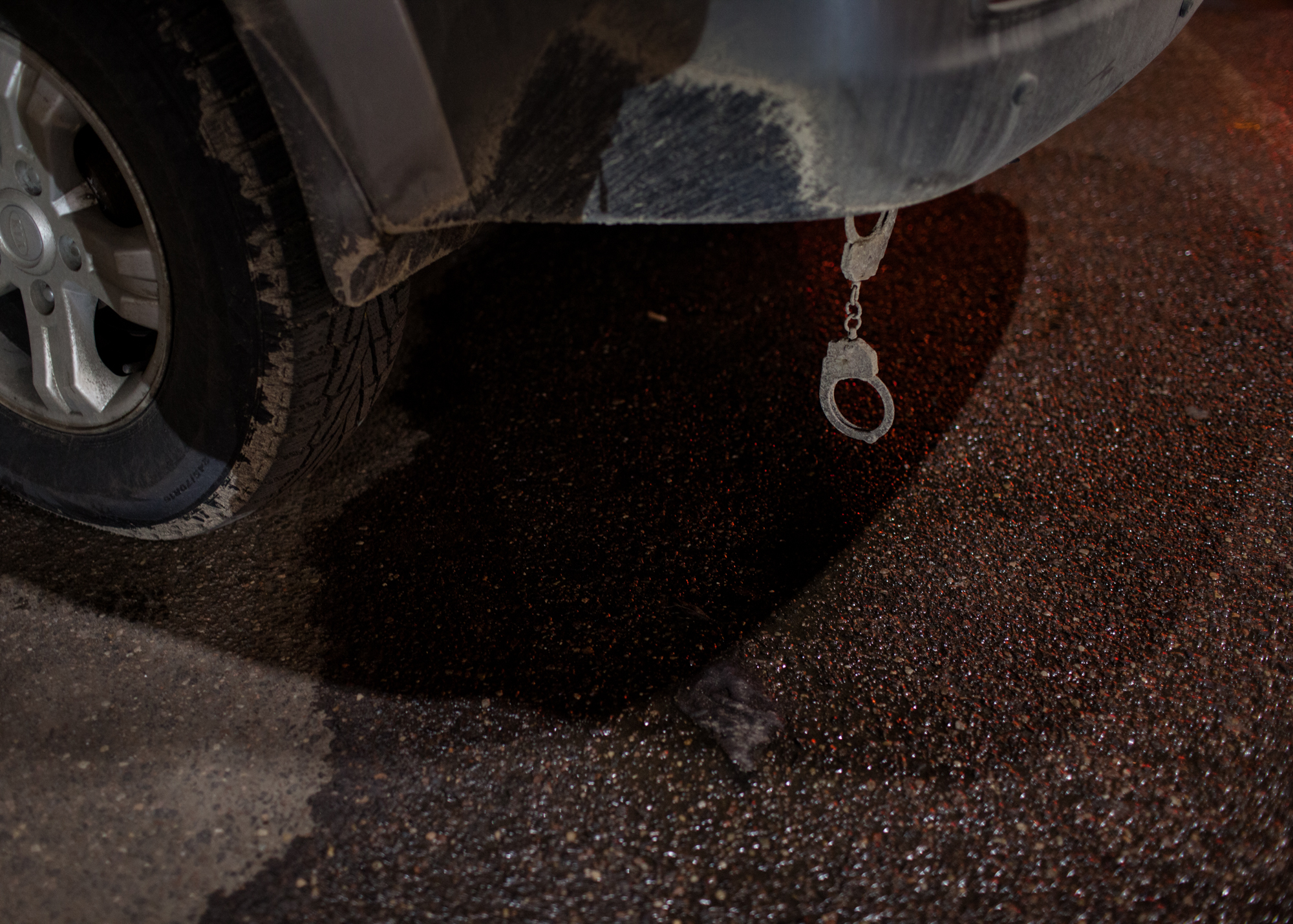 Handcuffs fastened to a jeep parked in Minsk city centre, Belarus. March 2018.
Handcuffs fastened to a jeep parked in Minsk city centre, Belarus. March 2018.
I come round, raise my head.
'What, you again? Woke up?' – and there come more hits.
I faint again. I bounce back; someone drags me by the arms and legs. They bring me
into an office, the handcuffs are clutched tighter. When I'm lifted up, the cuffs cut my
arms, and blood runs down. I don't know how many they were in the office, or how
long it lasted, I can't say even roughly, because I blacked out twice, couldn't
understand anything. For a few hours, they have ignored my requests to call an
ambulance, I asked like five times.
I was lying on the floor until one of the two district police officers came over and said,
'Now we will punish you gloves-off.'
He pulled down my pants, raised his baton for me to see that there was a condom on.
Then he started that action. I sprawled on the floor: tears, blood, everything was
covered with it. Then he took it out, wiped it off on my face and said, 'That's it, now
you are a downcast.'
Such things can't be overlooked, or they will continue. If not with me, then with
others. Usually, I am a calm, friendly person, but I feel only hatred to these people. If
it were up to me, I would have no mercy.
The investigation opposes me aggressively.
I asked the investigator, 'If they did it to your son, what would you do?'
He said, 'This won't happen to me.'
A cop told me, 'Do you see this badge? I do what I want and get away with it.' If he
has stars, does it mean he can do what he wants? How are they different from me,
from you? Well, how? They are simple citizens, too. Not that I'm a goody-goody, no.
But I want that everything is according to the law.
III
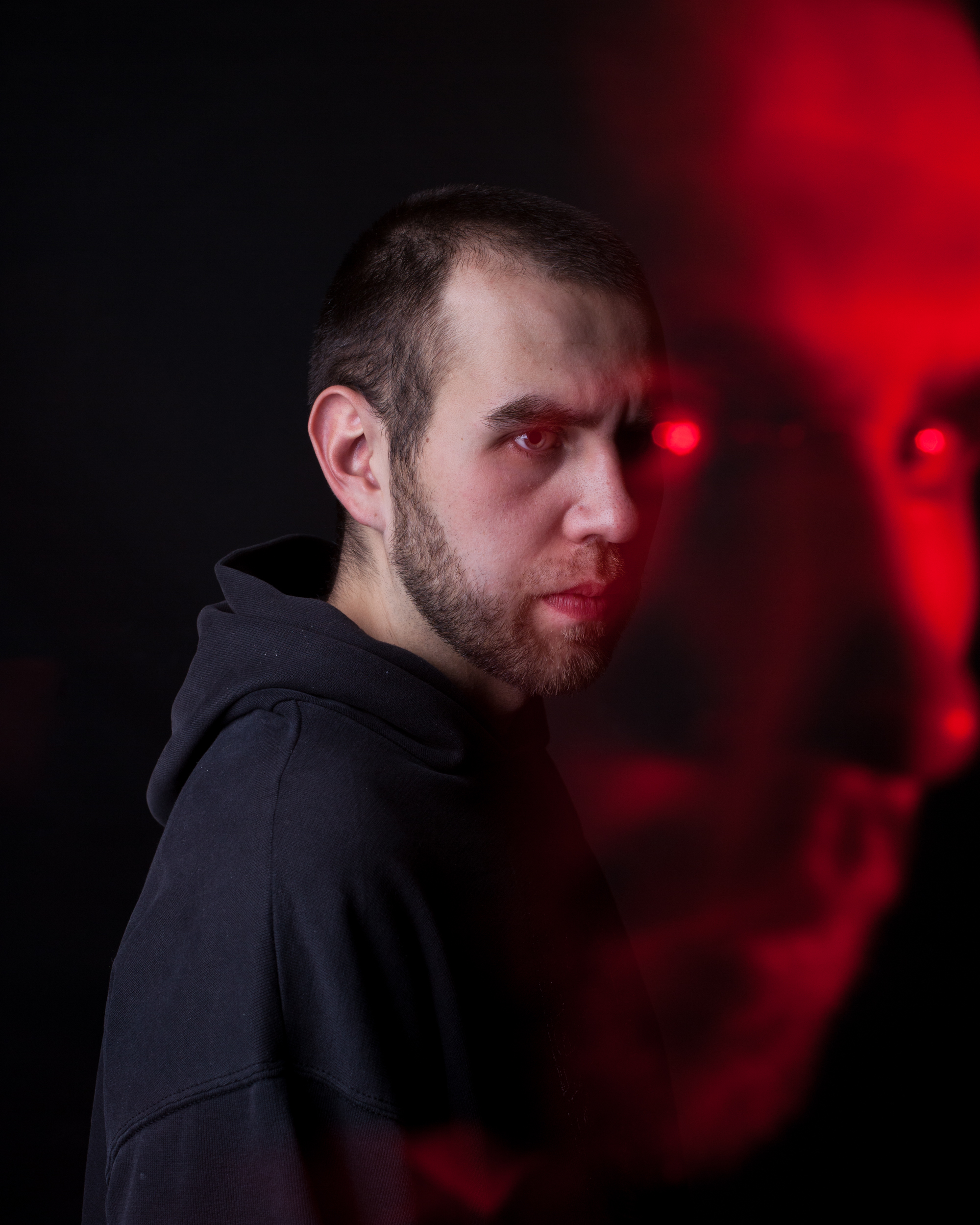
On the morning of February 23, 2018, two police officers came to Sergey's father
working place and tried to extract some information about Sergey. With his father,
they went to Sergey and invited him to get in the car with them. The father was let
go. Previously, Sergey had several infractions, and he thought that was the reason
for such interest from the police.
For more than three hours, the policemen have been grilling him about his friends
and acquaintances from the punk/hardcore scene, threatened to shoot him at the
leg, looked through the pictures on his phone. The police officers brought Sergey into the woods and held a gun to his back.
The Investigative Committee refused to initiate criminal proceedings.
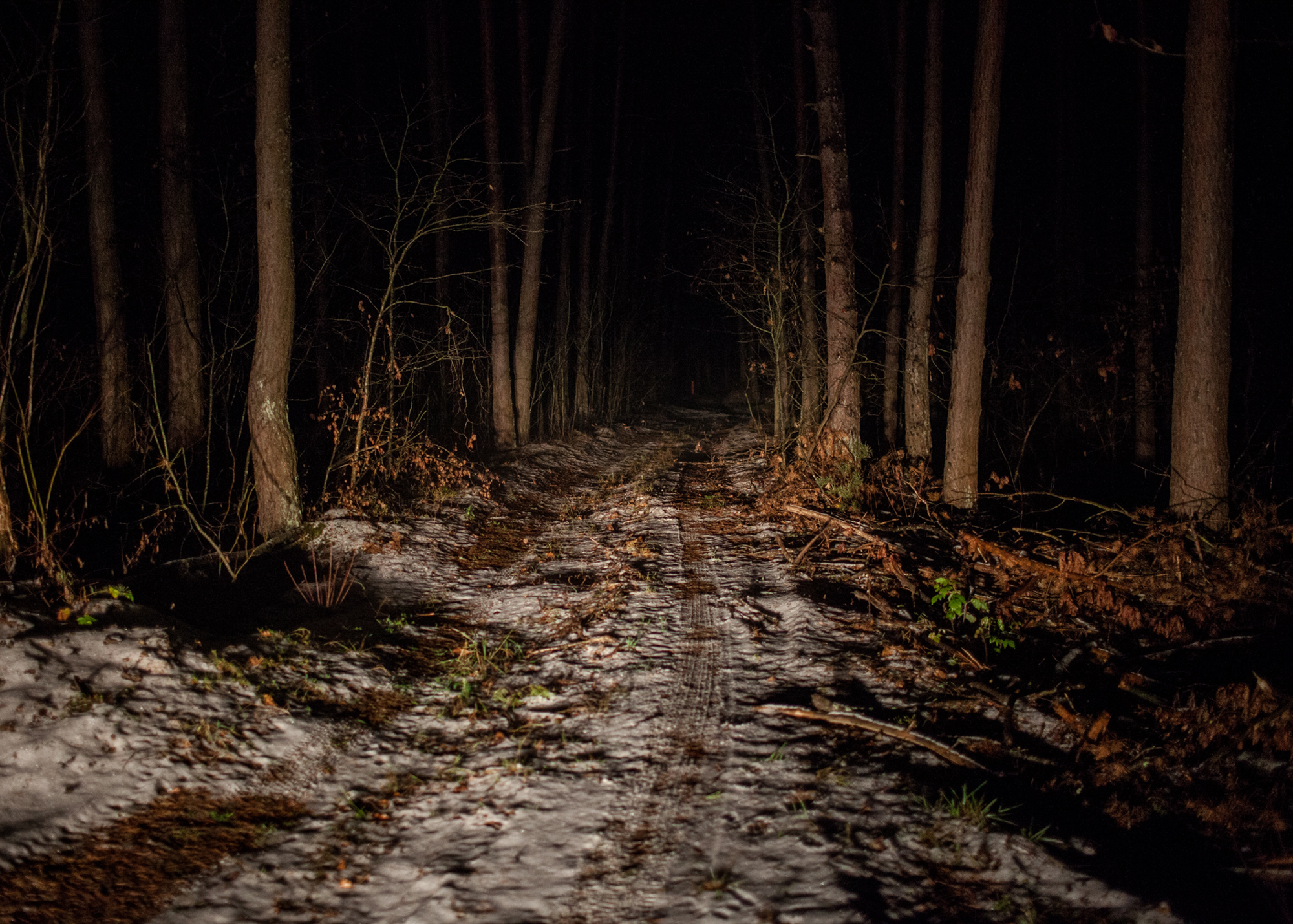 The forest glade where Sergey Sazonov was threatened to be killed. Stolin, Belarus, November 2018.
The forest glade where Sergey Sazonov was threatened to be killed. Stolin, Belarus, November 2018.
In the morning I got a call from the Brest criminal investigation department. They
asked for my address and arrived soon. I went out in all innocence. From then on
they haven't asked anything, just took me away. One was calm, the other, the young
one – impertinent. They were interested in my friends from the punk scene. When I
refused to talk, they began to threaten me that they would shoot me in the leg, and I
wouldn't prove anything.
Then I was taken to the woods. They ordered me out of the car, felt me up, 'Come
on, turn around and make a couple of steps forward.' As I walked away, they pointed
something at my back. I immediately realised it was a gun, as I heard the bolt click,
they flicked off the safety. I lit a cigarette. He said, 'I don't want to kill you, you know?
I don't want to do that, because you haven't done anything. It's about these
comrades of yours, and now you have to suffer for them. You're a good dude, we
just need you to tell us about them.'
They started to appeal to the fact that they could deprive my relatives of work, and it
would be my fault. The conversation lasted for an hour. At first, you think, 'What
a bullshit!' But then you start believing that they can really do it. These emotions are
accumulating, piling up. At that moment, I was extremely vulnerable. It is scary when
you can't do anything, while they can do everything. Then I had already realised that
they were rogues. I knew that I wouldn't get killed, I was 90 per cent positive about it.
It was shocking. Imagine that you are being taken into the woods, they tell you to put
your hands on the glovebox, and ask once in a while, 'Have you changed your
mind?' Thoughts come to your mind: what is going to happen? The fear of
anticipation. I wanted to escape from this hell, I was prepared to run away in the
woods, to walk five kilometres back to the city.
All that time they assured me that they had the authority to shoot me in the leg, they
could just kill me in the forest, and no one would hear about it, no one would be
looking for me. But I knew that it was impossible for a person to disappear just like
that.
At first, I was scared to even contact the media about it. I thought if I talked about it,
they would come again and it would be worse. I didn't know what they could do. I wanted them to just leave me alone.
I don't hate these people, I hate what pushed them to do something like this. What is
it? Fear of chiefs, fear of becoming ordinary people, losing their jobs... That's why
they are capable of such inhumane acts. They had a choice, they could not have
fulfilled the order.
IV
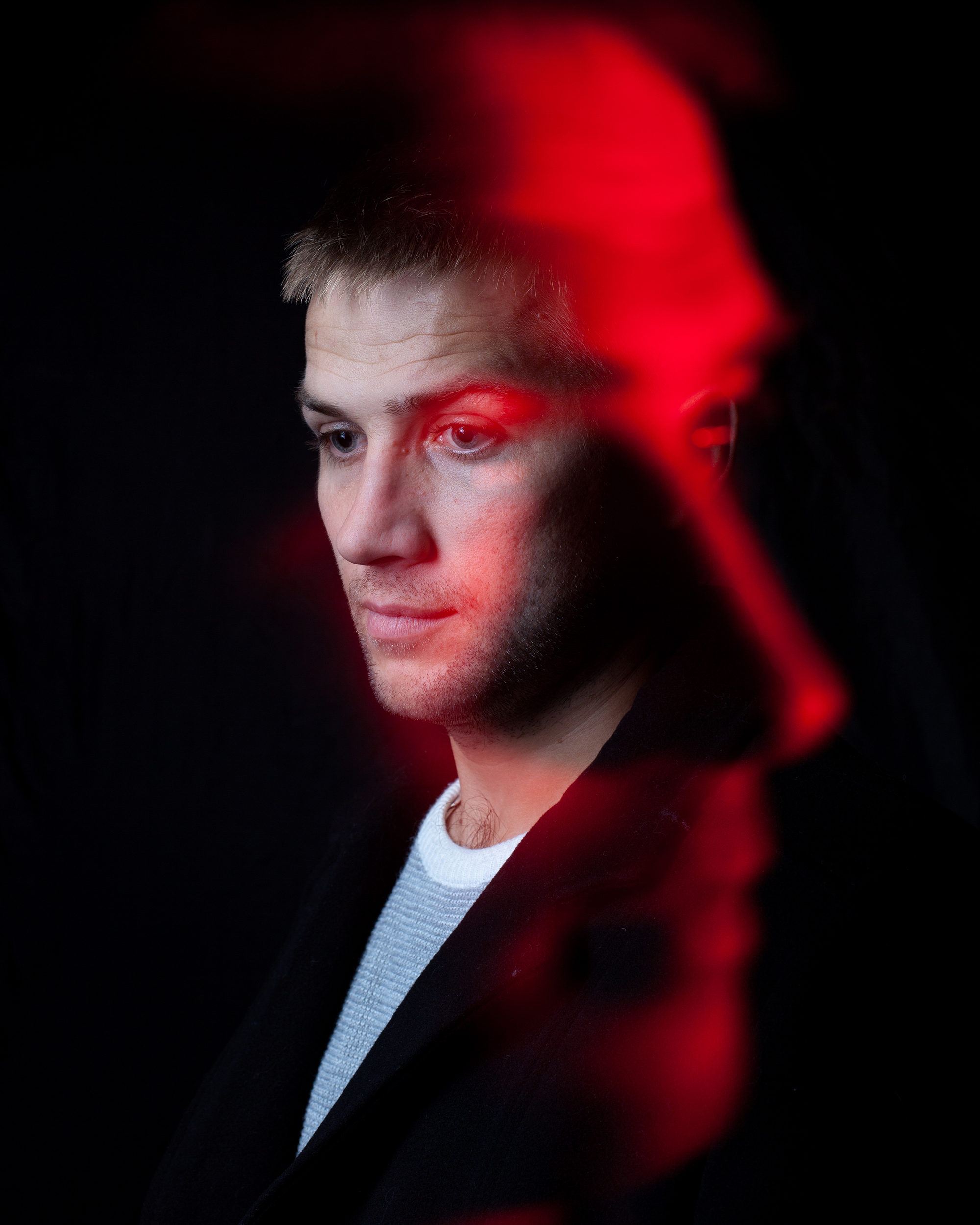
Boris was detained by a night patrol when he was returning from the anniversary of
his father on January 14, 2018. During the celebration, he drank some 250-300 ml of vodka. That night he quarreled with his wife, and she called
the police. Boris refused to go to the police station. During the detention, the police
used tear gas, knocked him down and kicked him. At the police station, they broke
his nose. The video clip from a surveillance camera is missing out on the 22 seconds
when it happened.
Forensic tests documented chemical burns on his face and eyes and numerous injuries and a nasal hematoma. As of this writing, Boris's family is challenging the refusal of the Investigative
Committee to initiate criminal proceedings against the police for the fourth time.
I was immediately knocked down, laid face down, handcuffed and kicked on both
sides. The third one leaned over and said, 'Take that, bitch!' and began spraying me.
It happened near their car and lasted for a few minutes.
In the police department, I was brought to the detention room. My eyes were
burning, the pain was cutting. The eyes and the face were so heated that it seemed
I'd rather die than stay there. When you are getting sprayed point blank, it burns like
your face has been put in the oven, like the skin on your face have been burned – a
horrible feeling. No one provided medical assistance.
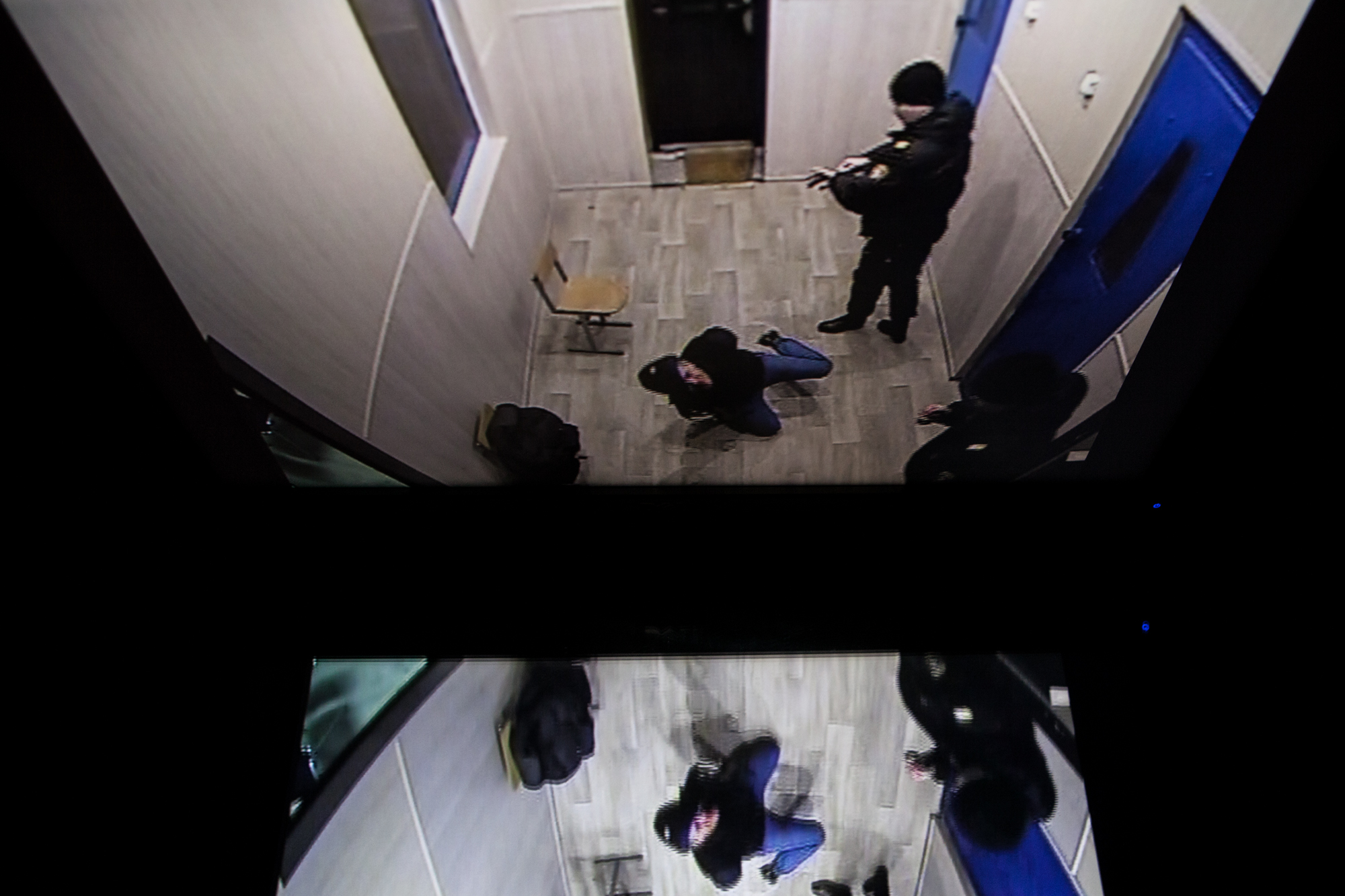 Screenshot of video from surveillance camera in police station, taken after the disappeared 20 seconds. Boris lies in the middle of the room. Belarus. April 2019.
Screenshot of video from surveillance camera in police station, taken after the disappeared 20 seconds. Boris lies in the middle of the room. Belarus. April 2019.
I writhed in pain and could not help myself. I said, 'I can't sit still, let me come to the
window, to breathe a bit.' But they would make me sit on a chair. When I stood up at
the window anyway, an officer punched me in the nose. Right there, in the detention
room. I think I lost consciousness, I remember only the moment of falling down.
Then we went to the hospital for examination. I was brought there all battered. The
doctor asked me, 'What happened? Who hit you? How did you get the injuries?' A
policeman said that it happened during the arrest. I complained to the doctor that my
eyes hurt a lot, it was hard to breathe, my nose was broken.
But the doctor just wiped my face of blood and said, 'Let's make you pretty!'
The chief of the police told me right in the face, 'Are legs and arms intact? Ribs
intact? Be grateful nothing is broken.'
Whatever door I entered – the Prosecutor's office, the Investigative Committee, the
Internal Security Directorate of the Ministry of Interior – I haven't heard a word of
truth. You're a little man.
I'm told, 'Why haven't you just come with them?'
I say, 'But there have been no demands, no explanations.'
He tells me, 'This is the authority!'
They made it clear to me: you are a nobody. If you are told to come, to sit down –
you have to.
Now, if I meet a person in a uniform, hatred boils in me. They may be a good
employee. But I do remember the boots.
V
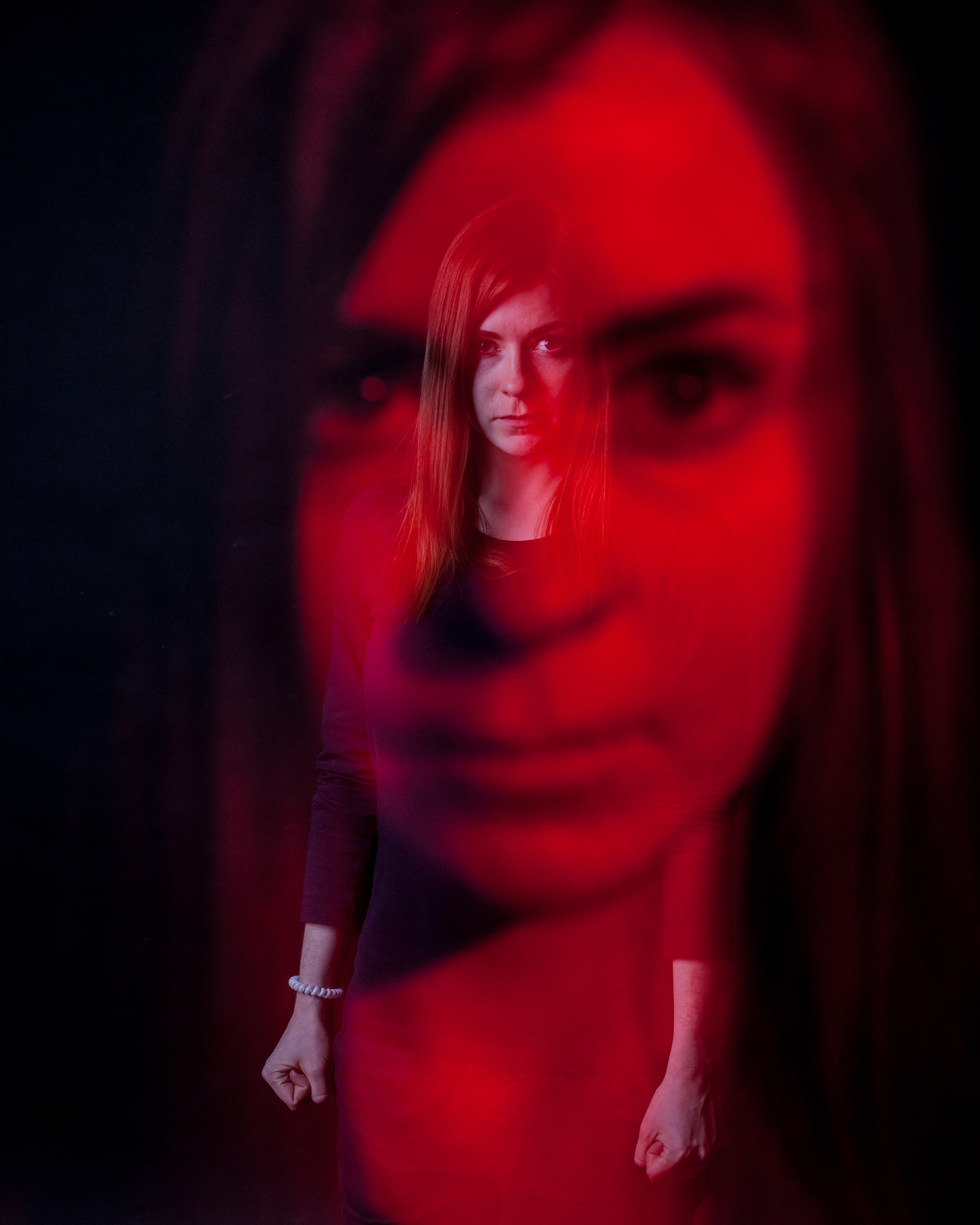
Tatiana was detained in downtown Minsk for identity verification, along with other
observers from the Belarusian Helsinki Committee during a protest action on March
25, 2018. In the courtyard of the police station, along with
other volunteers, Tatiana spent about three hours standing face to the wall.
In the police station, she was forcefully fingerprinted. The
policemen twisted her fingers pulling by the nails and forcibly held her for
photographing.
The Investigative Committee refused to initiate a case on police malpractice.
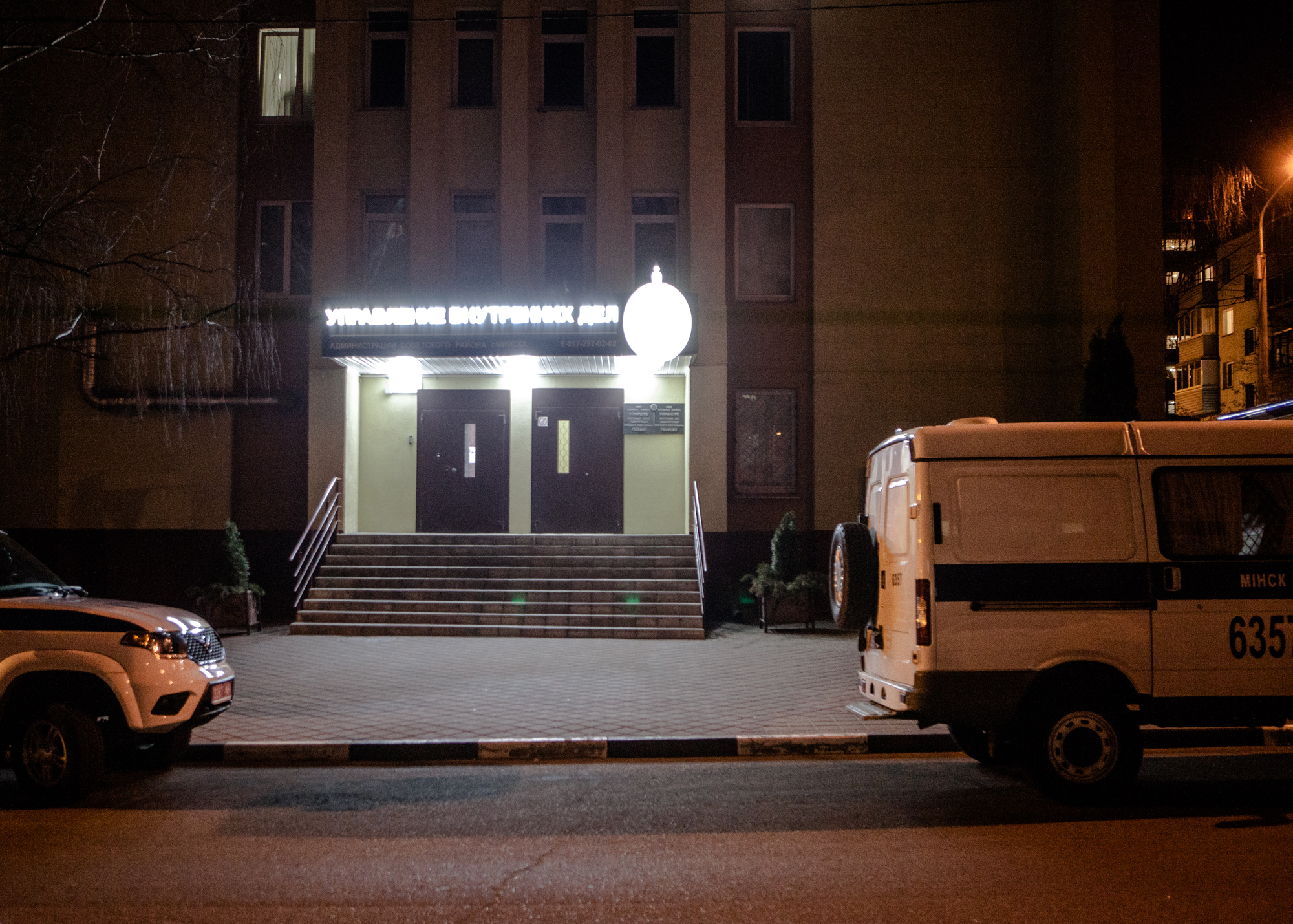 Main entrance to the police station where Tatiana was kept. Minsk, Belarus. April 2019.
Main entrance to the police station where Tatiana was kept. Minsk, Belarus. April 2019.
I tried to defend the right of an average person to natural integrity. I didn't want to
voluntarily give my fingerprints just because I was intimidated and subdued. I
understand I have this right, and they have no legal rights to carry out something like
this with me. I clenched my fists and would not allow to unclench them. I had long
nails, so he hooked a nail and relaxed each finger pulling by the nails. It was vital for
me to defend the imprint of my every finger.
The fight was painful and difficult. But it was important to show them that they're
wrong and abused their authority. I have an adequate sense of self-preservation not
to bring it up to broken arms or other injuries.
It was important for me to have control at least over something in that situation, even
psychologically. Not to be a victim, to remain true to myself, to defend my right to integrity. It is
a value for which you had to fight.
I remember that moment very distinctly when I was held by 3 to 5 people. One was
holding my right arm, twisting it behind. Another held the left hand. And their
commander in chief fingerprinted me, while a third officer fixed the hand which was
involved in the procedure. When I had a chance to turn back and see who was
holding me from behind, he didn't look me in the eye. It was apparent that he didn't
like what he was doing. It was likely that he didn't even agree with what was
happening. While another officer who was holding my left hand, calmly looked me in
the eye and smiled without turning a hair.
All this was accompanied by ridicule, insults. It was frustrating: you are forced,
humiliated, and everyone around contributes to this. As if it should be like that, as if it
is alright. No one supported me, no one said it was illegal, no one called anyone
from the management.
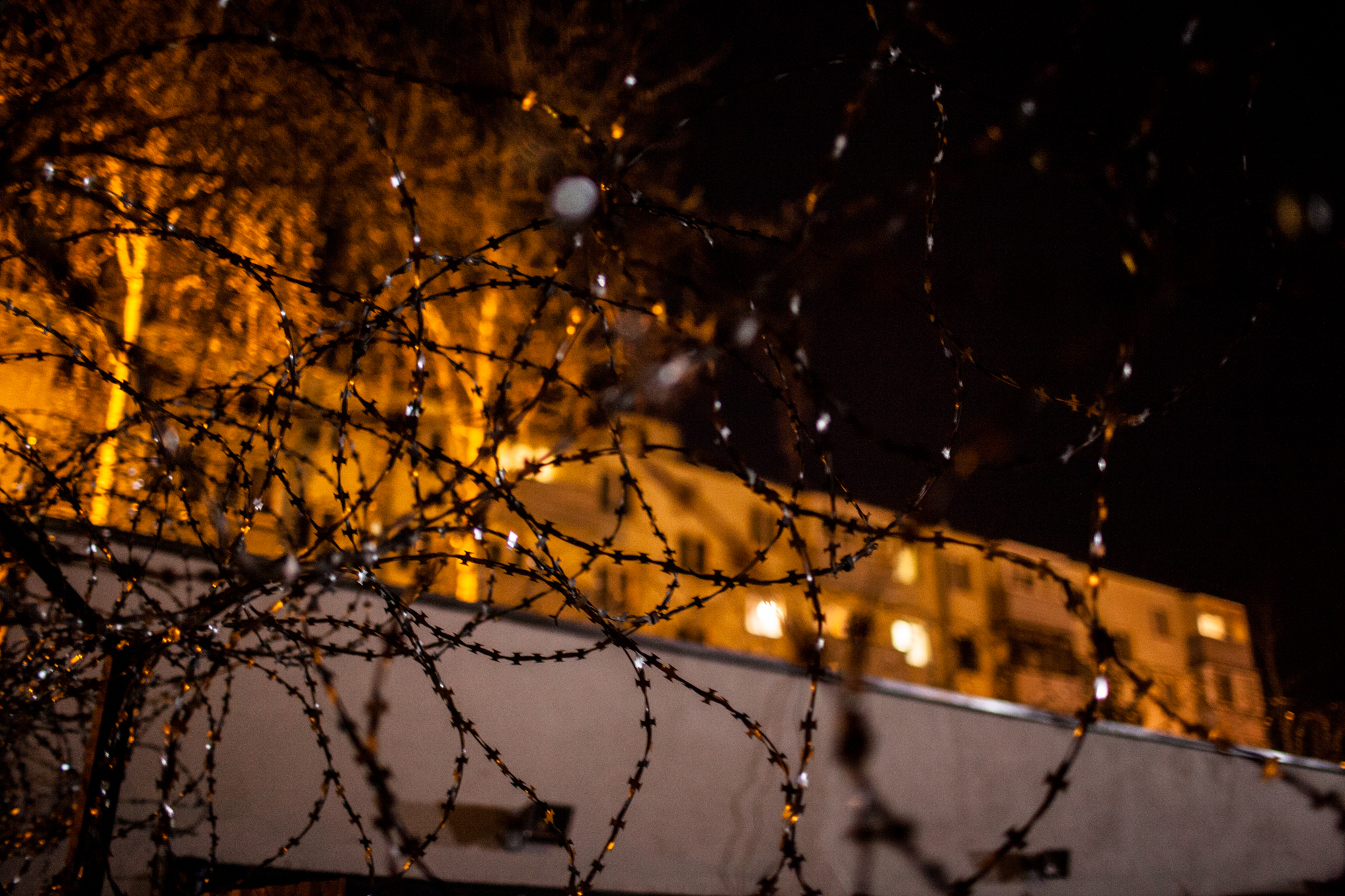 Barbed wire on a fence enclosing a police station where Tatiana was kept. Minsk, Belarus. April 2019.
Barbed wire on a fence enclosing a police station where Tatiana was kept. Minsk, Belarus. April 2019.
Then 4 or 5 people grabbed me. Someone held the arms, others clenched my legs,
someone else fixed my head so I looked straight into the camera. All I could do at
that point was to make faces and squint for the picture to be faulty. And I remember
that I wasn't sitting straight on the chair. It was either in a lying or reclining position.
My eyes were closed, so I only remember the inner feeling: I can't see anything
around me, and everyone around holds me. Through the closed eyes I felt the flash
of the camera.
If I had voluntarily given fingerprints, if I had willingly let them take a picture of me... I
would have broken down. It's like consenting to what was happening. In my head,
that was not even an option at that moment. It was vital for me not to give up, to
defend what I believed in. There was a clear understanding that no one would come
to help. If I hadn't texted my friends from the police department about what happened
to me, and it hadn't spread in the media ... they could have done anything to me.
Fear appeared when I came home, the adrenaline wore off, and I came to realise
what had happened. Then I started to shake, the voice trembled with emotion, it felt
so scary, painful, and I really needed to express that pain. Any violence is difficult to
process, to accept yourself in this situation and release it: to draw the right
conclusions, to understand that it's not your fault, and continue to live with this
experience.
They understand what they are doing perfectly well. If one behaves obediently in
such situations, these officers think they are doing the right thing, that this is the
norm. For me, this is another reason for not being silent. I don't know what should
happen to a person if they choose to do such things, and receive money for that! If
you obviously don't like it. But if you are willing to do it, then you should totally see a doctor.